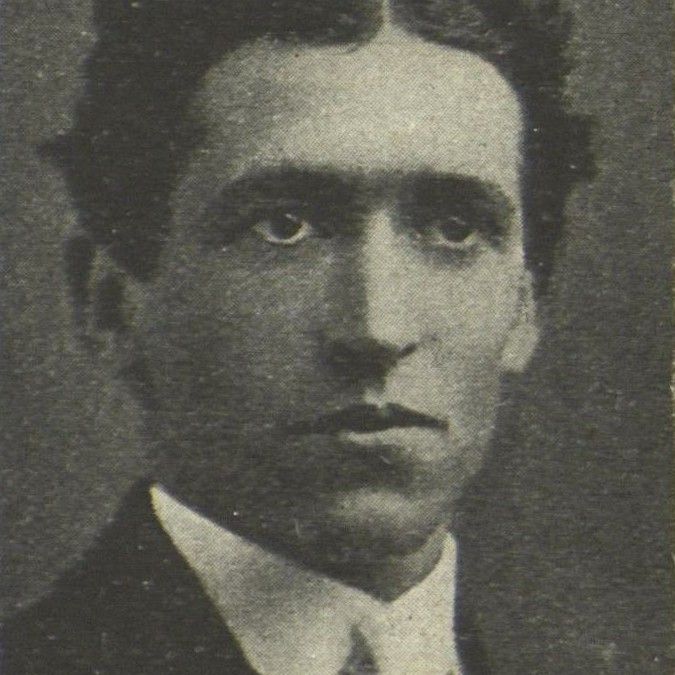
Private Eather embarked from Australia in February 1915. He only lived for a few days after his landing at Gallipoli. Private Jago, son of Mayor Jago, was close to where ‘Curly’ Eather met his fate. In a letter from Jago published in the Cumberland Argus in October 1915, Jago wrote, he “had just warned Eather — who had landed only a few days before – to rely upon the periscope, to get a look at’ the ‘enemy, and not to expose himself. Eather, new to ‘the game’ (that’s what the soldiers call it) said, ‘Oh, they’ll not get me. I’ll chance it!’ Jago went on with his work, watching out for any movement in the enemy’s trenches. A little later he heard a dull thud; and his friend lay there wounded in the head. Eather died a little later on a hospital ship. He was called ‘Curly’ because of his hair. ‘Had his hair been cropped closer it might have been better for him; he would have had more chance said said the doctor.”
Rev. Norman Jenkyn received the following wire from the Defence Department on Friday:— “Officially reported that No. 1544, Private C. Eather, 3rd Battalion, died of wounds on the 17th May. Please inform Mrs. M. Eather, Church Hill, Windsor, and convey deep regret and sympathy of their Majesties the King and Queen, as well as Commonwealth Government, in loss that she and the army have sustained by the death of the soldier.”
A letter from Chaplain Alfred Rose was also received by Eather’s mother, also published in the Cumberland Argus on 2 June 1915,
H.M.S. London, May 10. Dear Madam,You will have heard before you receive this of the death of your son, C. G. Eather, here in the Dardanelles. You will perhaps like to know that he was buried at sea, some three miles north of the Gallipoli Peninsula, together with several other brave men who had given their lives for their country. We read the burial service over them, and the scene was as reverent and peaceful, I think, as you could have wished. You will, I am afraid, be feeling his loss very keenly; but I hope it will be some consolation to you that he died doing his duty, and there are few men who will not envy him the manner of his death. We are all full of admiration for the work being done by the Australian troops, and if the price paid is heavy, the honor is correspondingly great. With much sympathy.



